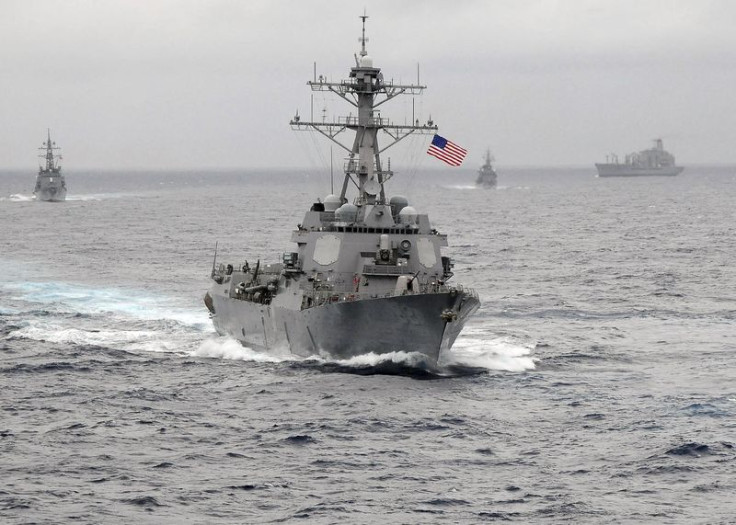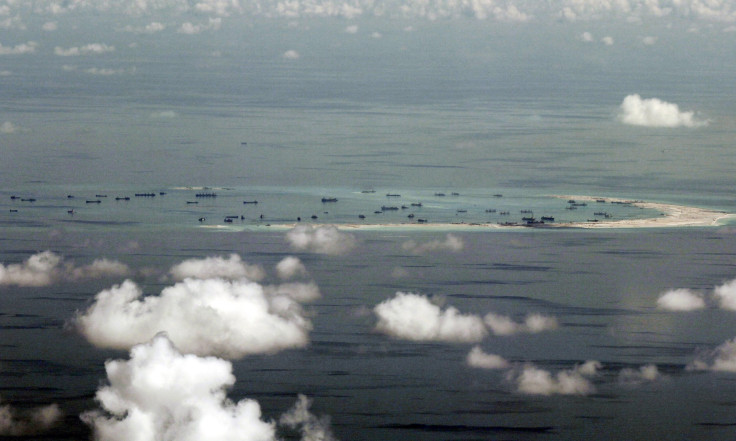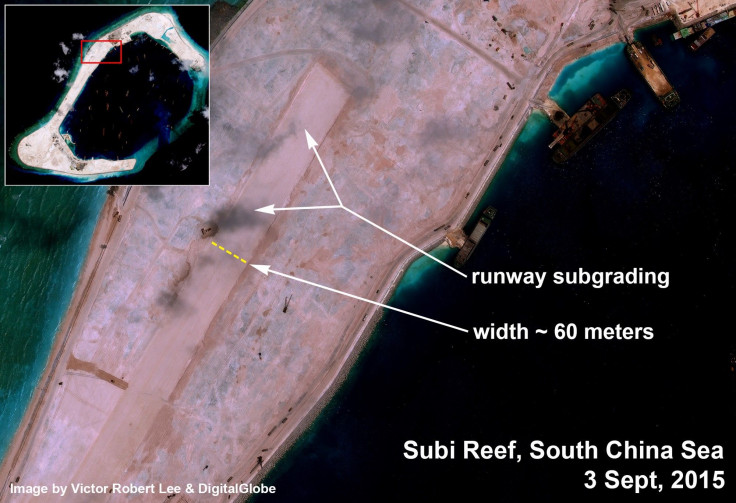South China Sea Tensions: Head Of US Pacific Fleet To Visit China, Navy Chiefs To Talk Too

SHANGHAI -- The head of the U.S. Pacific Command will visit China next week, local media said, amid tensions following Tuesday’s patrol by a U.S. destroyer through waters claimed by Beijing in the South China Sea. Meanwhile, the heads of the two nation’s navies were reported to be planning to hold an hour-long video conference Thursday to discuss the incident, which China has described as illegal and a “serious political provocation.”
Beijing says the patrol by the USS Lassen was a violation of the 12 miles of territorial waters it claims around islands in the Spratly archipelago, where China has been reclaiming land over the past year. The U.S. disputes China’s sovereignty over the islands, saying that they lie in international waters, and U.S. officials said the mission was designed to defend freedom of navigation in the area.

China’s Deputy Foreign Minister Zhang Yesui, who summoned U.S. ambassador Max Baucus following the patrol Tuesday, warned that such missions could lead to “accidents.” And the Chinese government’s anger over the mission was made clear Wednesday, when the official Global Times newspaper said in a commentary that the U.S. should realize China was “not afraid of war” over the issue.
Observers have welcomed reports that Admiral Harry Harris, commander of the U.S. Pacific Command, would visit Beijing from Nov. 2 to Nov. 5. Admiral Wu Shengli, commander of the People's Liberation Army Navy, and his U.S. counterpart John Richardson, were also due to hold an hour-long video conference Thursday, according to U.S. officials cited by Reuters.
The China Daily quoted experts as saying that Harris’ visit was believed to have been pre-planned as part of regular military exchanges, but the fact that it was going ahead was a positive sign that the two sides would not allow the dispute to derail bilateral relations. The analysts said the talks would be a chance for China to explain what it saw as its “legal rights and interests,” and to “avoid misunderstanding or miscalculation.”
China’s Foreign Ministry spokesman Lu Kang said Wednesday that solving the dispute “requires mutual steps” dialogue. He stressed that the two countries had reached “an important consensus” on maintaining communication over the South China Sea issue, during last month’s state visit to the U.S. by Chinese President Xi Jinping.
A U.S. defense official was also quoted by Japanese media as saying that such exchanges “could build trust” between the two navies, and prevent “unintended clashes." And other contacts between the two countries have also continued despite the tension: Talks on a bilateral investment treaty are currently taking place in China, while Chinese naval vessels are due to dock in both California and Florida in the next week.
One Chinese expert drew a parallel between the current situation and the tension between China and the U.S. in 1996, when the U.S. sent its Pacific fleet into the Taiwan Straits, after Beijing pointed missiles at Taiwan, which China also says is part of its territory. Ni Lexiong told Hong Kong's South China Morning Post that on that occasion the two sides were able to continue talking and eventually find a “point of balance” despite the military stand-off.

However, some Chinese media have accused the U.S. of breaching pledges made during President Xi’s recent U.S. trip, by failing to inform China in advance of the Lassen’s patrol this week. And with U.S. Defense Secretary Ashton Carter insisting this week that U.S. vessels would continue to sail “wherever international law permits and whenever our operational needs require,” it is unclear how much progress will be made in talks between the two sides.
China had pledged during President Xi's visit to Washington not to “militarize” the islands, which it says have been part of its territory for thousands of years. However, China’s ambassador to the U.S., Cui Tiankai, said this week that it was “hypocritical” for the U.S. to “ask others not to militarize the region while itself sending military vessels there so frequently.” And Shen Dingli, associate dean of the Institute of International Studies at Shanghai’s Fudan University, wrote this week: “The U.S. can’t slow China’s pace of building up its islands and reefs by simply flexing its military muscle in South China Sea.” He called on Washington to accept and embrace China’s growing international role.
Meanwhile Indonesia, which describes itself as an ally of both countries, called on the two sides to "restrain themselves." Government minister Luhut Pandjaitan criticized the U.S. patrol as an attempt at “power projection,” which would not solve the region’s problems.
But having highlighted China's claims to the islands in the country's domestic media over the past year, the Chinese leadership may now have to manage public anger over the issue: On official Chinese media websites this week, some citizens criticized the government for not taking tougher action -- with some commenting that China should “fight” the US if it continues its naval patrols around the disputed islands.
© Copyright IBTimes 2024. All rights reserved.






















